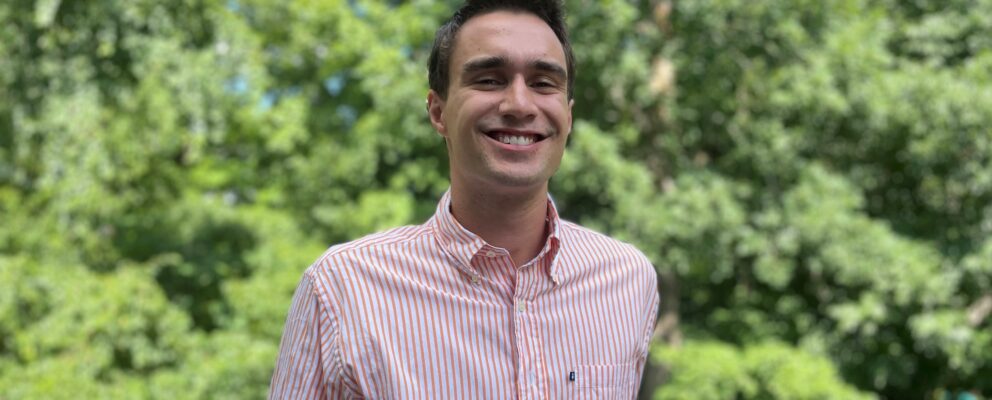Judson Griffin is in the master’s student in the Economics Graduate Program at NC State University. Read about his research project with Eric Edwards, assistant professor of water resource economics.
What brought you to NC State?
Growing up just fifteen minutes away from campus sure didn’t, but I knew that this was the best school in the state to pursue a degree in environmental science. And when I got here, I decided to change majors to economics and minor in ES. This way I could support the economy’s structural transition to sustainability in a big picture kind of way. I am now coming back to NC State for another year after I enrolled in the Accelerated Master of Economics Program during my last semester of undergrad.
How did you and Eric Edwards begin working together?
I had the pleasure of taking graduate water economics with Dr. Edwards last semester where he applied some of my favorite subjects like pollution and economic trade to water resources. In the research stage of the class’s final project, Dr. Edwards recommended that I read Water Affordability in the United States which would become the basis of my project. I reached out to Diego Cardoso and Casey Wichman, the authors of the paper, who were kind enough to share their data and some insights with me. From there I completed data analysis and a literature review on water supply, demand, pollution, and prices. To present the results of my analysis I created an interactive application with R Shiny, a statistical software program. Dr. Edwards recognized my enthusiasm for the project and the subject’s importance, so we decided to create an outreach tool together this fall.
Tell us about the project and what research you are doing?
We are analyzing the affordability of water prices in North Carolina, which is like a culmination of the other water crises including aging infrastructure, the effects of climate change, and population growth. My friends could tell you that I will go on all day about this, but I’ll try to keep it short this time; here are the facts: roughly one in seven Americans pay water bills deemed unaffordable by the EPA; Californians have amassed a billion dollars in water bill debt since the start of the pandemic; America’s aging infrastructure leaks a total of 17% of all water pumped costing $7.6 billion a year.
Right now, I am doing preliminary analysis on every NC county and municipality’s waters bills, incomes, and demographics, which is some 40,000 observations. I am developing some methods and applying others to determine how many NC households struggle to afford their bills. Eventually, we will present our analysis with interactive visuals and share it online.
How is this research going to help people make informed decisions about water affordability and efficiency?
Dr. Edwards and I aim to show North Carolina, and ideally America, that we are facing a water affordability crisis that is spiraling out of control. We want to emphasize that water is not only an issue in the arid West but across the country. As of July 6th, much of the Northeast, Midwest, and North Carolina is abnormally dry and the West is being ravaged by historic droughts. Natural disasters, rising temperatures, and pollution will only contaminate our water further, raising all our bills. This is an issue that should bring us together to combat climate change, demand infrastructure investment, and change our lifestyles. Being educated on these issues is important because they require structural changes, but conserving water is a great start.
What are your educational and career goals and how can being involved in this research help you achieve those goals?
I am currently completing a Master of Economics with concentrations in econometrics and natural resource economics. This degree has helped me visualize and quantify the economics of climate change and sustainability. I now aim to build a statewide database promoting water unaffordability, tracking infrastructure failures, and creating accountability for water polluters. I would like to get a Ph.D. one day, but after graduation, I will work on my project ideas or in public service.
